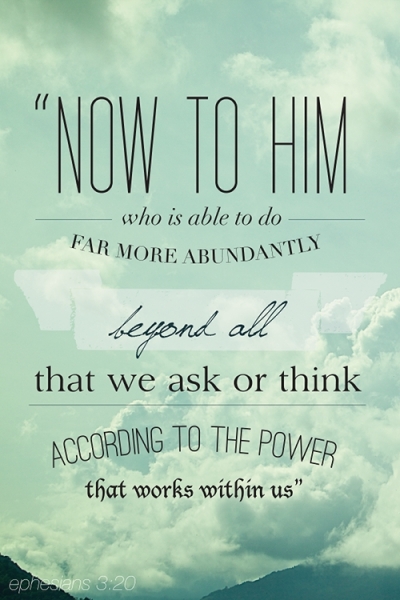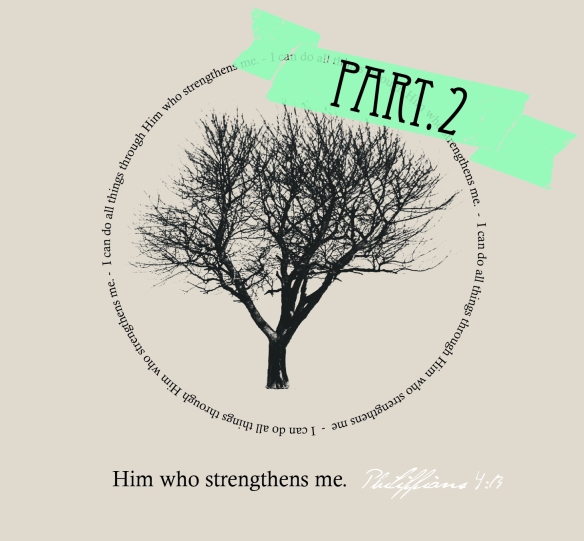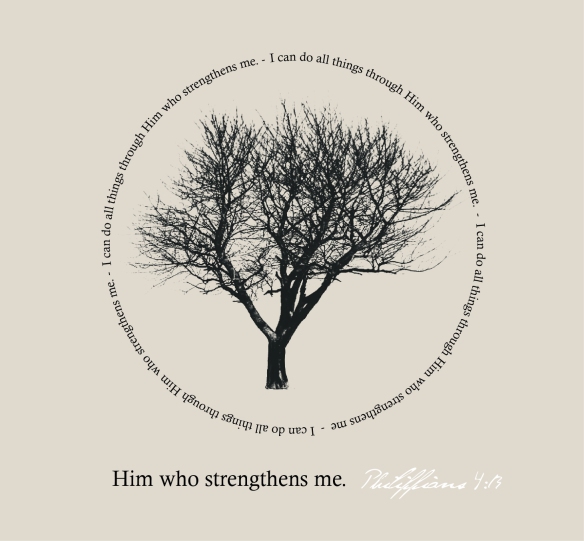Now that we’ve been back for a month you’ve probably gotten a sense for how we plan take turns writing on a week to week basis. I’ll take the first Sunday, followed by Helicon the second week, then Tim, and finally Dien.
What do we do with those months with a fifth Sunday? We’ve invited some of our to friends contribute in what we’re going to call our “Guest Post”. So to kick things off, we’d like to introduce you to Tony Cruz. You can follow his blog, Remnant Legacy, or get in contact with him on Twitter: @_tonycruz.
 Earlier this month, a letter I wrote to Soleil on her first birthday was posted on a great website called Daddy Letters. If you have a chance, you should check the website out. The letter resurfacing, especially as I finish reading through Genesis 4-5, reminds me of an experience Alison and I had two years ago during Christmas time in 2009 and the faithfulness God has shown to us consistently in our marriage, in life. It reminds of me the hope that exists for us as believers in Jesus Christ.
Earlier this month, a letter I wrote to Soleil on her first birthday was posted on a great website called Daddy Letters. If you have a chance, you should check the website out. The letter resurfacing, especially as I finish reading through Genesis 4-5, reminds me of an experience Alison and I had two years ago during Christmas time in 2009 and the faithfulness God has shown to us consistently in our marriage, in life. It reminds of me the hope that exists for us as believers in Jesus Christ.
Miscarriage, Christmas, and Alone
Two years ago, Alison and I flew to Phoenix, AZ to visit my family during Christmas week. We really had one objective: surprise my mother with news of our first pregnancy. Alison was excited about it, but I was anxious. I confess freely now (though I did not then) that when I found out we were pregnant, I was not excited. Alison’s news revealed to me how inadequate of a husband I had been up to then and that in turn would eventually create much resentment towards our unborn child. This new child would interfere with my efforts to correct my first three years of marriage. I was not ready to be a dad. I did not want to be a dad. I wanted time to fix my mistakes. I was frustrated with myself, with God, with my wife, and my unborn baby.
Our plan was to tell my mom on Christmas Day, a Friday, that we were 9-10 weeks pregnant. On Wednesday morning, Alison started experiencing severe pains. By the end of the day, she had miscarried and we had lost our first child. My mom was at work all day, our friends were in San Jose, and we felt incredibly alone. Instead of giving my mom the good news of her being a grandmother, I had to explain why Alison couldn’t even get off the couch. It was painful. I was distraught. Alison was in emotional, spiritual, and physical pain. Our baby passed and it was just the two of us again.
Hope and New Beginnings
 After working through the miscarriage with God and my wife, I realized how selfish I had been. I forgot that life was not about me, but about God. My real spirit and the real condition of my soul had been revealed with Alison’s news to me of her pregnancy and then humbled with the miscarriage. I was a broken man, with a hurting wife, and the only one I could turn to was God. As usual, He is faithful. He gave me hope. He healed my heart, my feelings, my marriage, and renewed my lazy focus which had made me into what I knew was an adequate husband. I learned tremendously from that experience and became ready to serve Him in whatever circumstance of life that He was going to place me in. Much to my joy, three months after we miscarried, Alison was pregnant again. After 12 weeks, we heard the baby’s heartbeat. Medically, that meant that the chance of miscarriage falls to less than 3%. While Alison got to experience this new life in her body, my heart was cold and distant, not ready to commit to the feelings I had towards this new baby for fear of loss. But when my daughter was born, all bets were off. I was ready. We were ready. God had blessed us with a beautiful daughter and new beginnings.
After working through the miscarriage with God and my wife, I realized how selfish I had been. I forgot that life was not about me, but about God. My real spirit and the real condition of my soul had been revealed with Alison’s news to me of her pregnancy and then humbled with the miscarriage. I was a broken man, with a hurting wife, and the only one I could turn to was God. As usual, He is faithful. He gave me hope. He healed my heart, my feelings, my marriage, and renewed my lazy focus which had made me into what I knew was an adequate husband. I learned tremendously from that experience and became ready to serve Him in whatever circumstance of life that He was going to place me in. Much to my joy, three months after we miscarried, Alison was pregnant again. After 12 weeks, we heard the baby’s heartbeat. Medically, that meant that the chance of miscarriage falls to less than 3%. While Alison got to experience this new life in her body, my heart was cold and distant, not ready to commit to the feelings I had towards this new baby for fear of loss. But when my daughter was born, all bets were off. I was ready. We were ready. God had blessed us with a beautiful daughter and new beginnings.
Enoch Lives (Gen. 5:21-24; Heb. 11:5)
After the creation of humanity, marriage, the fall of humanity into sin, and punishment, Scripture paints a pretty meek picture for the next few chapters of Genesis. Death reigned. Not just death at the hands of others, but death in general. Instead of the life that God had offered in the garden, you read these sections of Scripture where God seems to make it a point that death was the result of the fall. A common phrase in Genesis 4-5 is “and then he died.” This man lived this many years, “and then he died.” That guy died, this guy died, everyone was dying. When you are reading about life and things being good (Gen. 1-2) and then moving into this literary valley of death, it is so clear that God wants to make a point: there is life in the midst of death.
The author of Genesis makes this incredibly clear when you read about a guy named Enoch. You see, the Bible said that everyone was living their life, having their children, and then dying. Except for Enoch. The original Hebrew text paints this beautiful picture of Enoch and his relationship with God: Enoch walked with God and then he was not. The reason: God took him. Enoch never experienced death. God took him away so he did not have to deal with that. The point is that there is life in the midst of death. It was God’s way of pointing to Jesus Christ, even in the Old Testament! If there is life in the midst of death with Enoch, how much greater life would there be in Jesus?
Jesus Offers Life in the Midst of Death
We will always be surrounded by death. The nanosecond we enter in this world, our bodies experience the process of moving toward decay. That is reality. Death is inevitable. Relationships die. Careers get shot. The natural world experiences death all the time. People are killing each other. People are dying. It is a unarguable fact and reality for us. Of course, our natural instinct is to hide from it, shelter ourselves from it, pretend it does not exist, or act like there is nothing we can do about it. In some sense, we can’t do anything. If we feed the starving, they will die eventually. If we give water to those who thirst, they will die eventually. If we give homes to the homeless, they will die eventually. Please hear me when I say: WE SHOULD BE DOING THOSE THINGS. But we primarily need to offer them life in the midst of death. As Christians, we know that the only life that can be offered in the midst of death is that of Jesus.
Jesus Christ offers life in the midst of death, through His own death. He does not just offer us eternal life, though that is His mission’s goal. But Jesus offers people hope, joy, and peace that no trouble in the world can take away from that. As a Christian, I hear people arguing all the time that this reality of giving our life up to Christ is simply not enough. People need tangible help, too. If you want to argue about how that’s not enough, I would challenge you to reconsider whether or not you believe in the full and complete gospel that Jesus Christ offers. It is hard to share something, if you find no value in it. Take some time and think about whether or not that’s your struggle.
Jesus offers you eternal life. The consequence for all of us is death. Not so with Jesus. In the midst of death, Jesus offers us life. He is the only one who can offer such an amazing gift, through the work He did on the cross. He offers it to everyone who believes. Believe. Repent of your sins and believe in Jesus. Share the good news of the arrival, death, resurrection, and second coming of King Jesus with everyone you know. Believe. Have hope. Believe in life in the midst of death. The gospel of Jesus Christ offers you eternal salvation and so much more in the present life. He is waiting.
Believe.
If you want to talk about Jesus, about the Bible, about life or death, about hope, please contact me. Just send me a message on here or on Twitter: www.twitter.com/_tonycruz. I will be praying for you.




